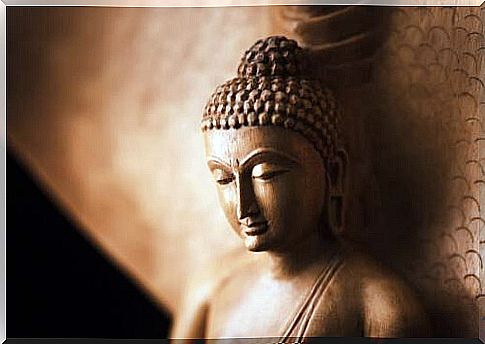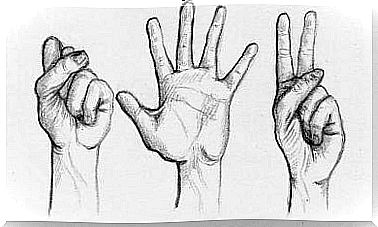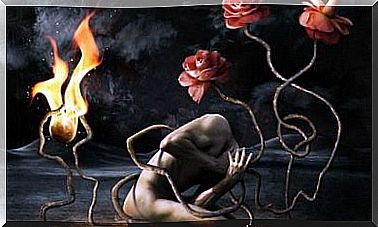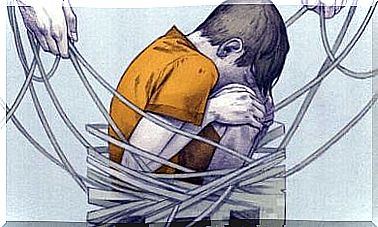A Buddhist Story About Patience And Mental Stillness

We have a bad habit of wanting almost anything instantly, of getting things done immediately. We prefer to change our option rather than have patience. We are more willing to give up than to make the effort, especially if the fruits need time to ripen.
We are uncomfortable with postponing the satisfaction of our desires, having to wait… Our mind starts to bombard us, through worries and expectations, to speed up the pace of events.
Thus, we live quickly and with a lot of noise, both internally and externally. Wandering from place to place, with no path other than the one that marks our need for immediate satisfaction.
To this we must add the hum of our inner voice, because thought seems to be present in everything we do. It’s like we’re somehow addicted to it. We love to think, hypothesize and let ourselves get caught up in the labyrinths and vicious circles of our beliefs.
We ignore, perhaps, the most important thing: how to get out of these self-imposed traps, how to free ourselves from our mental traps. The Buddhist story that follows gives us the answer.

Buddhist history
Buddha and his disciples decided to undertake a journey during which they would traverse various territories and cities. One day, when the sun was shining with all its splendor, they saw a lake in the distance and stopped to quench their thirst. Upon arrival, Buddha addressed his younger and more impatient disciple:
– I am thirsty. Can you bring me some water from that lake?
The disciple went to the lake, but when he arrived he noticed that an ox cart began to cross it and the water, little by little, became cloudy. After this situation, the disciple thought “I cannot give the master this muddy water to drink”. So he came back and said to Buddha:
– The water is very muddy. I don’t think we can drink it.
After a while, approximately half an hour, Buddha again asked the disciple to go to the lake and bring him some water to drink. The disciple did this. However, the water was still dirty. He returned and in a conclusive tone informed the Buddha of the situation:
-The water from that lake cannot be drunk, it is better to walk to the city so that its inhabitants can give us something to drink.
Buddha didn’t respond, but he didn’t make a move either. He stayed there. After a while, he asked the disciple to return to the lake and bring him water. The latter, not wanting to challenge his master, went to the lake; of course he was furious, for he didn’t understand why he had to go back if the water was muddy and couldn’t be taken.
Upon arriving, he noticed that the water changed in appearance, looked good and was crystal clear. So he took some and took it to Buddha. He looked at the water and said to his disciple:
– What did you do to clean the water?
The disciple did not understand the question, he had done nothing, it was evident. Then Buddha looked at him and explained:
– You waited and left her standing. This way the mud settles on its own and you have clean water. Your mind is like that too! When it’s upset, you just have to let it go. Give him some time. Don’t be impatient. On the contrary, be patient. You will find balance. You don’t have to make any effort to calm her down. Everything will happen if you don’t stick with it.
The art of patience to silence the mind
Patience. That’s the secret of this Buddhist story. The art of knowing how to wait, respecting the times and stopping when the occasion deserves – or needs -, above all, our thoughts. In fact, the more overloaded we are and the larger the cobwebs formed by our beliefs, the more we need to stop.

Doing nothing, giving time and waiting is a good option to calm a restless mind or monkey mind as Buddhists call it. The one that bounces from thought to thought in an agitated way, until we are exhausted and confused.
If we get carried away by impatience, anger, stress or frustration, in addition to feeling bad, we will certainly end up making rash decisions as a result of our impulses. It’s best to take a few minutes to breathe, emotionally step back from what happened, and get in touch with yourself. Because only then will we achieve that state of mental stillness, as indicated at the end of the Buddhist story.
Sometimes it’s not so much about acting or doing something urgently, but about being calm and not getting carried away by the noise of immediacy and pleasure; that is, to still the waters of our minds and wait as long as necessary. Because when we calm our mind and reach that mental stillness, the emotions work with our thoughts and we are able to adopt other looks, other perspectives.








